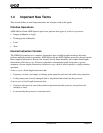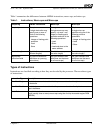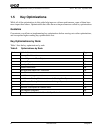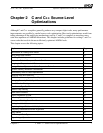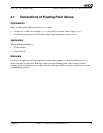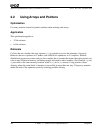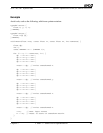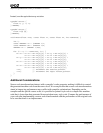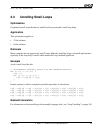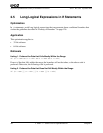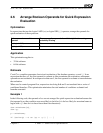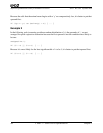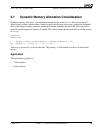
12 C and C++ Source-Level Optimizations Chapter 2
25112 Rev. 3.06 September 2005
Software Optimization Guide for AMD64 Processors
Instead, use the equivalent array notation:
typedef struct {
float x, y, z, w;
} VERTEX;
typedef struct {
float m[4][4];
} MATRIX;
void XForm(float *res, const float *v, const float *m, int numverts) {
int i;
const VERTEX* vv = (VERTEX *)v;
const MATRIX* mm = (MATRIX *)m;
VERTEX* rr = (VERTEX *)res;
for (i = 0; i < numverts; i++) {
rr->x = vv->x * mm->m[0][0] + vv->y * mm->m[0][1] +
vv->z * mm->m[0][2] + vv->w * mm->m[0][3];
rr->y = vv->x * mm->m[1][0] + vv->y * mm->m[1][1] +
vv->z * mm->m[1][2] + vv->w * mm->m[1][3];
rr->z = vv->x * mm->m[2][0] + vv->y * mm->m[2][1] +
vv->z * mm->m[2][2] + vv->w * mm->m[2][3];
rr->w = vv->x * mm->m[3][0] + vv->y * mm->m[3][1] +
vv->z * mm->m[3][2] + vv->w * mm->m[3][3];
++rr; // Increment the results pointer.
++vv; // Increment the input vertex pointer.
}
}
Additional Considerations
Source-code transformations interact with a compiler’s code generator, making it difficult to control
the generated machine code from the source level. It is even possible that source-code transformations
aimed at improving performance may conflict with compiler optimizations. Depending on the
compiler and the specific source code, it is possible for pointer-style code to compile into machine
code that is faster than that generated from equivalent array-style code. Compare the performance of
your code after implementing a source-code transformation with the performance of the original code
to be sure that there is an improvement.



